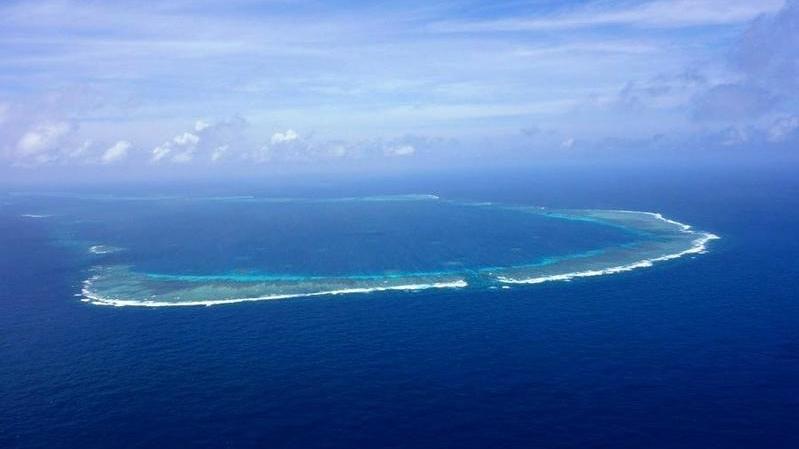 This undated file photo shows a view of Ren'ai Reef. (PHOTO / CHINA DAILY)
This undated file photo shows a view of Ren'ai Reef. (PHOTO / CHINA DAILY)
BEIJING - Chinese analysts have decried recent provocations made by the Philippines in the South China Sea and warned that such moves, with the backing of non-regional major countries, will have a long-term and negative impact in the region.
On Dec 9, in disregard of repeated persuasion and warnings from China, Philippine vessels intruded into adjacent waters of Huangyan Dao.
On the following day, Philippine vessels intruded into adjacent waters of Ren'ai Jiao in China's Nansha Qundao in an attempt to ship construction materials to its illegally grounded warship at the reef.
The behaviors of the Philippine side not only breached the international law and regional consensus but also harmed its friendship with China and undermined its interests, said Li Kaisheng, vice-president of the Shanghai Institutes for International Studies
In response, the China Coast Guard took necessary enforcement measures in accordance with laws and regulations.
ALSO READ: China warns against provocation steps in South China Sea
The analysts said Huangyan Dao and Ren'ai Jiao have always been part of China's territory and China has indisputable sovereignty over Nanhai Zhudao (the South China Sea Islands) and their adjacent waters.
They said in the latest Ren'ai Jiao case, the Philippines was attempting to ship construction materials to occupy the reef. In the Huangyan Dao case, the Philippines stubbornly intruded into the island's adjacent waters with thinly veiled motives, escalating the tensions in the region.
The behaviors of the Philippine side not only breached the international law and regional consensus but also harmed its friendship with China and undermined its interests, said Li Kaisheng, vice-president of the Shanghai Institutes for International Studies.
He said the Philippines' provocations would prompt China to be even firmer in safeguarding its interests.
ALSO READ: China lodges representations with the Philippines over provocation
Dai Fan, vice-dean of the School of International Studies at Guangzhou-based Jinan University, said one of the reasons the Philippines made such provocations was because the acts were endorsed by the United States and its allies.
Some US allies refused to tell right from wrong and took ill-intentioned acts as part of their efforts to coordinate with the so-called "Indo-Pacific strategy" of the United States, Dai said, adding that the interference of non-regional major countries has a very negative impact.
The viewpoint was echoed by Li, who said the development would undermine the central role of ASEAN in regional security affairs. It would undermine the solidarity within ASEAN and might drag the attention of regional countries from economic development to entangled geopolitics, which will leave a negative impact on the long-term development of the region, he said.
The US State Department pointed fingers at China's law enforcement efforts in a statement released on Dec 10 and said that the US-Philippines Mutual Defense Treaty extends to the South China Sea.
READ MORE: China slams US statement on Ren'ai Reef and Huangyan Island
The analysts said by threatening China with the mutual defense treaty, the United States is emboldening the Philippines' violation of China's sovereignty, adding that such moves seriously violate the purposes and principles of the UN Charter and gravely jeopardize regional peace and stability.


